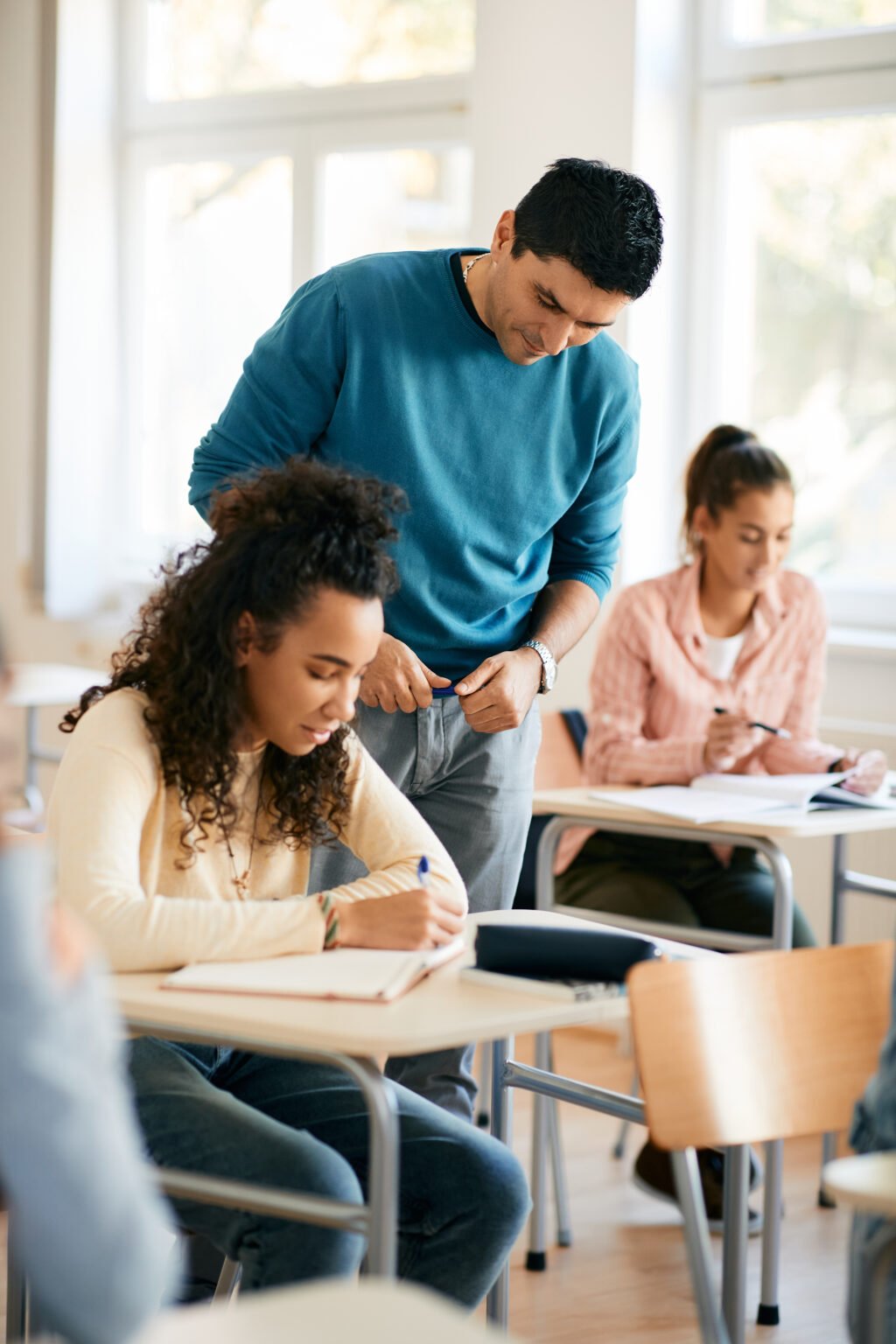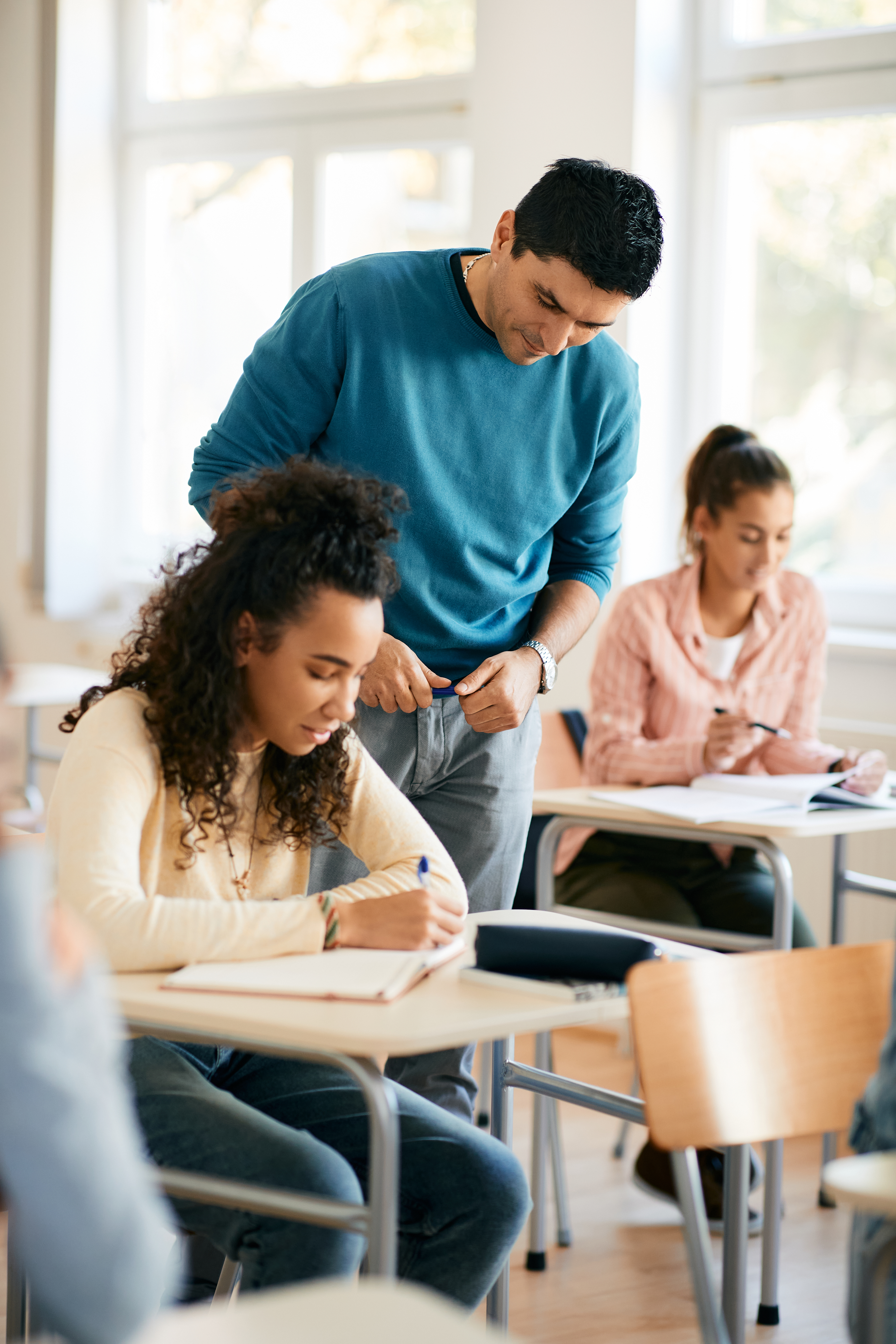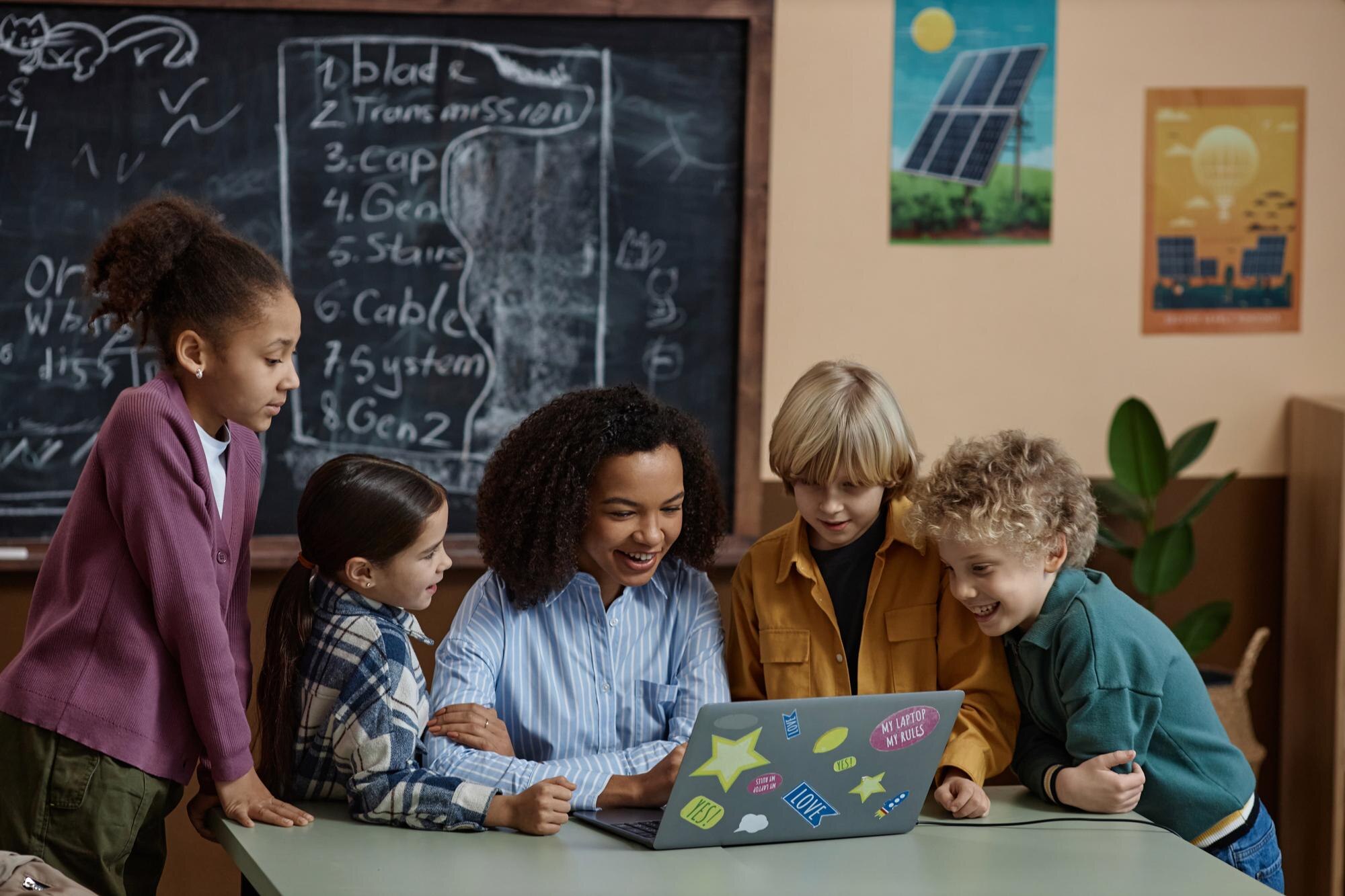
Smiling teacher helping African American teenage girl with a lecture in the classroom.
Top Strategies for Educators to Empower Gifted Students with Resilience and Confidence
Gifted students face unique challenges. They often grapple with anxiety and perfectionism, leaving them vulnerable in a world that demands their best. But what if there was a way to turn these challenges into strengths? In this guide, you’ll discover practical educator strategies that nurture emotional resilience and confidence in gifted youth. By the end, you’ll have the tools to support their growth, both emotionally and mentally. Ready to make a difference? Dive into these transformative insights and join our upcoming workshop to learn more.## Building Emotional Resilience

Gifted students often need guidance to build emotional resilience. Understanding their unique challenges and implementing effective techniques can foster their growth. Let’s explore how educators can support these students in developing emotional intelligence and resilience.
Understanding Gifted Student Challenges
Gifted students frequently face distinctive challenges, including heightened sensitivity and a propensity for overthinking. Such traits can lead to anxiety and stress. Understanding these challenges is crucial for educators to provide the right support.
Gifted students might struggle with social interactions due to their advanced thinking.
They often set unrealistic expectations, leading to frustration.
Emotional intensity can cause them to feel isolated from peers.
By acknowledging these issues, educators can tailor their approach to meet the emotional needs of gifted students. This understanding lays the foundation for developing effective resilience strategies. For more insight, check out these classroom strategies.
Techniques for Emotional Intelligence
Emotional intelligence is vital for managing feelings and relationships. To cultivate this in gifted students, educators can implement various techniques.
Active Listening: Encourage students to express their feelings and listen actively without judgment. This helps in validating their emotions.
Self-Reflection: Guide students in reflecting on their emotions and actions, promoting self-awareness.
Role-Playing: Use role-playing exercises to help students understand different perspectives and develop empathy.
Implementing these techniques can help gifted students better understand and manage their emotions, leading to enhanced emotional resilience. For further techniques, explore this comprehensive guide.
Mindfulness Practices for Resilience 🌟
Mindfulness is a powerful tool in building resilience. Mindfulness practices help students stay present and manage stress effectively.
Guided Meditation: Introduce short meditation sessions to help students relax and focus.
Breathing Exercises: Teach simple breathing techniques to use during stressful moments.
Journaling: Encourage students to write about their thoughts and feelings, fostering self-awareness.
Regular mindfulness practice can significantly improve students’ emotional resilience. For more on building resilience, visit this resource.
Confidence Building Techniques

Confidence is essential for gifted students to thrive. By encouraging healthy risk-taking and celebrating their unique strengths, educators can help build their self-assurance.
Encouraging Healthy Risk-Taking
Healthy risk-taking involves stepping out of comfort zones in a controlled manner. This can help gifted students grow and learn.
Create Safe Spaces: Ensure students feel safe to experiment and fail without judgment.
Set Achievable Goals: Help students set realistic goals that challenge them without overwhelming them.
Provide Support: Offer guidance and encouragement as students take on new challenges.
By fostering an environment that supports risk-taking, educators can help students develop confidence and resilience. Learn more about this approach in this article.
Overcoming Perfectionism
Perfectionism can be a significant hurdle for gifted students, often leading to stress and inaction. Educators can support students in overcoming this through practical strategies.
Normalize Mistakes: Teach that errors are part of the learning process.
Focus on Effort: Emphasize the importance of effort over perfection.
Celebrate Imperfections: Encourage students to appreciate the beauty in imperfections.
These strategies can reduce the pressure of perfectionism, allowing students to explore their potential freely. For more insights, visit this educational blog.
Celebrating Unique Strengths 🎯
Gifted students possess unique strengths that deserve recognition and celebration. Highlighting these can boost their confidence.
Personalized Recognition: Acknowledge individual talents and contributions.
Share Success Stories: Encourage students to share their achievements with peers.
Highlight Growth: Focus on personal growth rather than comparison with others.
Celebrating strengths can instill a sense of pride and confidence in students, making them feel valued and motivated. To explore more strategies, read this guide.
Educator Strategies for Support

Educators play a crucial role in supporting gifted students. By honing effective communication skills and creating a nurturing environment, they can make a significant impact.
Effective Communication Skills
Effective communication is key to understanding and supporting gifted students. It involves active listening and clear expression.
Be Open and Approachable: Encourage students to share their thoughts and feelings.
Use Clear Language: Avoid jargon and use language students understand.
Provide Constructive Feedback: Offer feedback that is specific, positive, and actionable.
Strong communication skills help educators build trust and rapport with students, enhancing their ability to provide meaningful support. For additional tips, explore this comprehensive resource.
Creating a Safe Learning Environment
A safe learning environment is crucial for gifted students to express themselves freely and take risks.
Inclusive Practices: Ensure all students feel included and respected.
Positive Reinforcement: Use positive reinforcement to encourage desired behaviors.
Flexible Spaces: Provide flexible learning spaces that cater to different needs and preferences.
By fostering a safe and inclusive environment, educators can enable students to thrive academically and emotionally. For more strategies, visit this educational resource.
High-Performance Coaching Methods 🏆
High-performance coaching can help gifted students reach their full potential. This method focuses on maximizing students’ strengths and setting ambitious goals.
Identify Strengths: Work with students to identify and leverage their strengths.
Set Clear Goals: Help students set specific, achievable, and challenging goals.
Monitor Progress: Regularly review progress and adjust strategies as needed.
These methods can empower students to excel and build confidence in their abilities. For more on coaching techniques, refer to this insightful article.
🌟 By incorporating these strategies, educators can effectively support gifted students in their journey toward resilience and confidence. Join our upcoming workshop to learn more innovative strategies for supporting gifted students.

A certified Heal Your Life® Coach with 20+ years in education and emotional development. Supports gifted teens in navigating anxiety, perfectionism, and identity challenges, while equipping parents with practical tools for lasting transformation. Sessions blend emotional healing, mindset mastery, and strategic empowerment.



